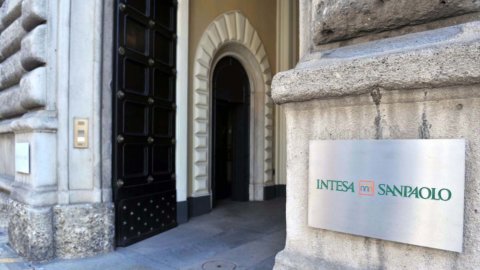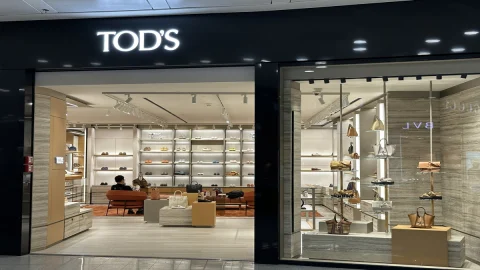ACCORD OVER THE NIGHT IN BRUSSELS. LONDON STAYS OUT. IN VIEW OF A NEW DAY OF PASSION FOR THE MARKETS
Agreement on the reform of the treaties only between the 17 countries of the euro area plus another 6 of the European Union. But Great Britain stays out. This is the dramatic result of the night in Brussels which closed an even more dramatic day for the financial markets.
In Milan, the FtseMib index fell by 4,23%. London is down 1%, Frankfurt -2%, Madrid -2%, Paris -2,4%. It fared no better on the government bond front. The yield of the 10-year BTP jumped to 6,36%, the differential with the bund flew to 442 from the day's low of 375 basis points.
A tragedy, in short, which was consumed in several acts: 1) the disappointment for the words of Mario Draghi who has not made any commitments on the duration of the interventions on the BTPs and has frozen the expectations of extraordinary actions through the IMF; 2) the diktat of the EBA on the capital increases of the European banks; 3) the emergence of increasingly incurable conflicts between the United Kingdom and the Merkozy line. Apple of discord, the defense to the bitter end of the role of the City. In vain Mario Monti sought a compromise, pointing out to Cameron that London, which has always been hostile to protectionism, could not ask for special treatment for its financial center.
FORECAST. All equity futures were biased towards deep red. The news of the first agreement from Brussels, starting with the sending of 200 billion to the Monetary Fund, has partly corrected the situation: futures on the S&P have risen, albeit only slightly. But the euro remains under pressure. After yesterday's crash, therefore, the start of the markets looks negative. On Wall Street the session closed with a marked decline: S&P 500 -2,11%, Nasdaq -1,99%, Dow Jones -1,63%. Similar script in Asia: Nikkei – 1,48%, Hong Kong – 2,46%.
200 BILLION EU COMING FOR THE IMF. DRAGONS RESCUE MANAGEMENT
The Brussels agreement envisages a "budgetary union", strengthened by tighter constraints and the objective of a "substantial balance" as the basic rule for state budgets. In fact, a maximum structural overrun of 0,5% of GDP is envisaged, leaving the possibility of deficit adjustments in the face of unfavorable economic cycles or exceptional economic circumstances. The member states aim to increase the availability of the International Monetary Fund by 200 billion, in the meantime the Salva Stti Fund will be administered by the ECB.
THE EBA'S COULD DE GRACE TO THE ITALIAN BANKS. ONLY UNICREDIT HAS PLANNING AN INCREASE
In this frame the EBA verdict, European Banking Authority, has the flavor of the coup de grace. The European authority, led by the Italian Andrea Enria, estimates the capital requirement of credit institutions in the old continent at 114,7 billion euros, an increase of 8 billion compared to the latest estimates. Italian banks need 15,4 billion. If we exclude Unicredit (just under 8 billion) which is already planning an increase in line with the requests, the most urgent cases concern Mps (3,27 billion), Banco Popolare (2,7 billion) and Ubi (1,4. 1 billion). Banco Popolare has already made it known that it will make "the best effort" to reach the Core tier 9 of XNUMX% "without further recourse to the market". Vibrant protests from Banca Mps which speaks of an "inappropriate decision". In any case, the diktat of the EBA accelerates the reorganization of the bank's control: the CDP solution is increasingly probable. UBI also lets it be known that thanks to the conversion of the convertible loan, it will adapt to the EBA parameters with a series of measures without resorting to the markets. From the general picture, therefore, two indications emerge: a) a season of reduction in loans; b) a flurry of asset sales.
The rate cut and easier access to ECB funding have not satisfied the markets. Indeed, the landslide began after the press conference in which Mario Draghi ruled out the possibility of putting in place a triangulation with the Monetary Fund to support the euro countries in difficulty. Furthermore, Draghi admitted that the rate cut was only decided "by a majority". The margins for maneuver are narrowing, the ECB "cannot go on indefinitely" to buy the government bonds of Italy, Spain and other countries in difficulty. But, in the absence of the agreement with the IMF, there are no resources to support the financial needs of Rome and Madrid for 2012. An injection of uncertainty on timing and quantities which has frozen market expectations regarding capacity of the Bank of Frankfurt to ensure financial stability. On the contrary, since yesterday the blanket to protect Btp and Bonos is even shorter.
BUBBONE FONDIARIA SAI WEIGHTS ON THE MEDIOBANCA SHARE. A 600 MILLION INCREASE IS NECESSARY FOR THE COMPANY
In Piazza Affari it was a massacre for financial stocks. Here is Caporetto as a percentage: MontePaschi -9,1%, Intesa -8,9%, Mediobanca -10,4%, Ubi -7,1%, Pop.Emilia -8,3%, Banco Popolare -6,1% , Unicredit -7,2%. Never, perhaps, in its history has Mediobanca (-29% since the beginning of the year) had to face such a critical situation: the high-risk situation of Fondiaria Sai weighs on the bank, to which Mediobanca is exposed with a subordinated loan of 1,1 billion , repayable only after satisfying the other creditors. Hence Piazzetta Cuccia's offer, which said it was ready to organize and support the placement of a Fondiaria Sai capital increase for 600 million. Fondiaria-Sai, meanwhile, showed a drop of 9,6%. The company, which was the subject of a capital increase of 460 million in the summer, today capitalizes 430 in all. The project to set up a vehicle company in which to park the shares of strategic equity investments was rejected by Isvap and the creditor banks. Meanwhile, Mediobanca's capitalization has dropped to around 4 billion.
Generali -3,6%: the Leone group and the French Axa are among the potential buyers selected by HSBC Holdings for the acquisition of the bank's insurance business, worth around 750 million. HSBC has activities in non-life insurance in Asia, in some Latin American countries (Panama, Honduras, El Salvador, Argentina and Mexico) and in France. HSBC would prefer to sell the assets in a single block, but could consider a stew.
GS AND MERRILL LYNCH BOCCIANO FINMECCANICA. TODAY THE CAR CONTRACT FOR FIAT
Difficult to choose the most tormented title on a nightmarish day. But Finmeccanica -9,3% is once again among the candidates for the unwanted premium: the stock was downgraded by Merrill Lynch, which cut the target price to 3 euros from 4 euros and by Goldman Sachs (2,5 euros instead of 4), despite the fact that the order book increased by 1,5 billion in the last week.
Fiat fell by 3,3%, Fiat Industrial -7%. The contract for the car is now in its final stages: today it could be signed. Excluding Fiom,
Eni loses 2,9%. The CEO Paolo Scaroni, in Qatar for the world oil congress, took stock of relations with Iran and the risks in the event of sanctions against Tehran. Eni boasts 2 billion dollars of receivables, payable in crude oil, against the National Iranian Oil maCompany (NIOC). The Italian company, added Scaroni, could do without Iranian crude to feed its refineries but it would be a serious damage to give up the "oil payments that NIOC is making to us". Iranian oil accounts for about 15% of Eni's supplies but if there were a ban on Iran the company could obtain more oil from other sources such as Russia or Libya.





